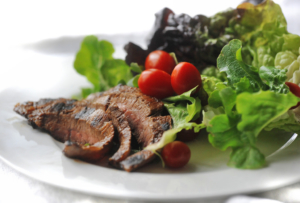Food and nutrition in pregnancy
Maintaining good nutrition during pregnancy is important for both you and your growing baby. Pregnancy places additional energy and nutrient demands on your body. It is therefore important to ensure your diet includes a variety of foods from the five food groups including fruit, vegetables, grains and cereals, dairy foods or calcium fortified dairy alternatives, lean meats, chicken, fish or meat alternatives.
Whilst the food and nutrients you consume play an important role in your baby’s growth and development, you do not necessarily need to increase the quantity of food you consume, rather it is the quality of your diet that is important. Extra energy requirements are typically only necessary in the second and third trimester and vary depending on factors such as age, weight, physical activity level and stage of pregnancy. If you have any questions about your diet during your pregnancy, it is a good idea to speak with your care providers to ensure you are receiving the right information for you.
Pregnancy is also a time when extra caution should be taken with food preparation and handling. Good hygiene practices can reduce the risk of bacterial infection and food poisoning which can cause significant risk to your growing baby. There are also a number of foods which should be avoided during pregnancy due to increased risk of contamination or high levels of potentially harmful substances.
For more information;
The Royal Women’s Hospital – Food & nutrition in pregnancy
ACT Health – Good Nutrition in Pregnancy booklet
Vitamins and minerals
During pregnancy, there is an increased requirement for a number of vitamins and minerals which are necessary for the growth and development of your baby, including folate, iron, iodine, calcium, vitamin D and vitamin B12.
Ensuring a healthy diet during your pregnancy will help you meet your daily needs for most nutrients, however it is often recommended that pregnant women take a daily pregnancy supplement to ensure their needs are being met. It is important to discuss this with your healthcare provider before taking any medication or vitamin supplements.
Also see;
Foods to avoid and food safety
For more information;
The Royal Women’s Hospital – Healthy eating when you’re pregnant
The Royal women’s Hospital – Healthy eating when you’re pregnant, information for vegetarians and vegans
The Royal Women’s Hospital – Iron in pregnancy
The Royal Women’s Hospital – Vitamin D and pregnancy
Source: (The Royal Women’s Hospital)
Image: Food Swings [CC-BY-ND-2.0]


